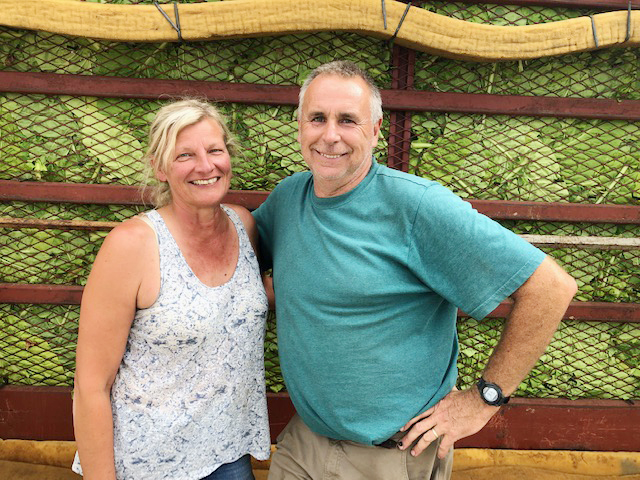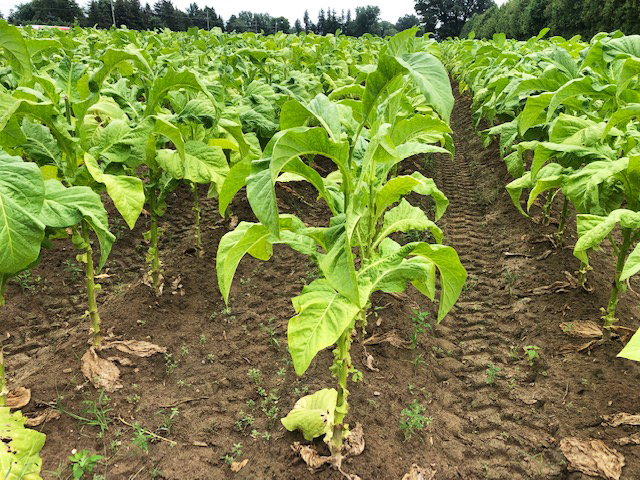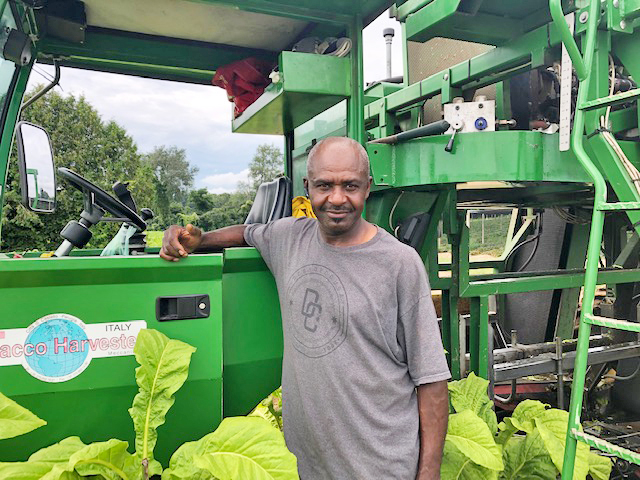32 years growing tobacco
- Norfolk Farms
- Feb 9, 2022
- 2 min read
Like all tobacco growers, the Schunk family are keeping their fingers crossed for an uneventful conclusion to this year’s crop.
Harvest wraps up towards the end of September and, to date, the crop has come along well.
“It’s been really good quality, better than some of our past crops,” said Jim, who grows a total of 116 acres with his wife Yvonne on two leased farms in the Waterford area.
The Schunks have been growing tobacco for 32 years and have experienced all the travails of the industry.
Traditionally, weather is the wild card in growing tobacco. The fragile leaves are particularly susceptible to frost and hail damage.
The Schunks “dodged” a whack of hail mid-season in the area.
“We’ve never had hail destroy an entire crop,” Jim said.
However, last year their harvest was cut short by a deep frost on September 18.
But it’s not been Mother Nature who has been an adverse factor in their tobacco operation.
The outbreak of Covid-19 last year has forced the Schunks to pay close attention to the health and well being of their employees.
The family has relied on off-shore workers for several years. Currently, they employ 17 workers from Jamaica, many of whom return annually from May to October.
“A couple have been coming for 20 years and they’re part of the family,” Jim said.
He admitted the health restrictions mandated by the government have been “pretty stressful”, but they have always been conscientious about the health of their workers.
“The (Haldimand-Norfolk) health unit was our go-to,” Jim said. “We follow all the regulations.” “We practise good hygiene,” he added.
Overall production on the farm has been cut back as part of an industry wide trend to less demand. This year’s crop is 116 acres and Jim anticipates further declines in the future.
Jim said Ontario production took a free fall in the 1990s and has continued to drop since. He recalled there were about 1,800 growers when he first started and today there are only 200 left. Prospects are poor for any expansion. Tobacco pricing on world markets continue to fall off, following decades of decline fuelled by restrictive government regulations and rising input costs.
“We’re at the mercy of world markets,” Jim said. “The only way to make it is by bigger volume.”
But he added that expansion is unlikely with fewer younger farmers getting into the business.
Yet for all the challenges, the Schunks remain committed to the crop which has given their family a good life.











Comments